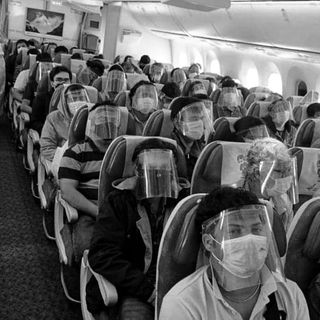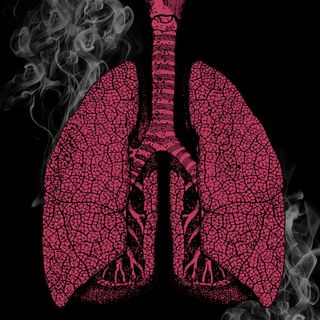In the race to develop quick, accurate testing for Covid19, researchers have found an unconventional, but not necessarily unsurprising, solution — dogs. Recently, the capital city of Finland, Helsinki, deployed dogs at its main airport to detect coronavirus in passengers arriving from abroad as part of a four-month trial that attempts to find alternatives to time-consuming and often uncomfortable testing options, such as nasal swabs and saliva screenings.
At the Finnish airport, passengers are asked to wipe their necks with a wipe, which collects sweat that is then given to a sniffer dog. If the dog signals the sample is Covid19-positive, then the airport directs the passenger to a health center that provides them with a virus test, the Associated Press reports.
It’s the dog’s ability to detect infinitesimally different smells that researchers are trying to employ in this pilot program. It has previously been tested and utilized in the fight against malaria (they could sniff out socks worn by children carrying the malarial parasite) and cancer (they could sniff out cancerous cells from samples of blood plasma). Now, researchers are hoping dogs can bring the same superior sense of smell to detect coronavirus, an initiative German researchers have already found to be successful with saliva samples of both infected and non-infected people, in which dogs detected Covid19 with a 94% success rate.
Related on The Swaddle:
Mumbai Residents Can Now Get Tested for Covid19 Without a Doctor’s Prescription
In May, the University of Helsinki was already testing out dogs’ ability to tell the urine and sweat of infected patients apart from non-infected patients, an experiment that showed initial promise and is now being rolled out on a larger, randomized scale. In Helsinki airport, the largest-yet trial is being done with sweat, and has already proven to be successful in initial stages, researchers say. The dogs can even sniff out asymptomatic people, the New York Times reports, which is earlier detection than even the widely-used PCR test can do for Covid19 patients.
The one big unknown, however, is what exactly the dogs are smelling that’s enabling them to tell the novel coronavirus apart. “We know how dogs detect it — by smell — but we have no clue what they detect yet,” University of Helsinki researcher Anna Hielm-Björkman tells the New York Times. “If we find this out, we can train thousands of dogs across the world.” Currently, two studies have attempted to answer this question, but have not provided a conclusive answer.
Depending on the success of the Helsinki trial, dogs could become a viable, cost-effective option to do mass-testing for Covid19, especially in high-risk areas (they don’t seem to be susceptible to Covid19, and we have no evidence they can transmit the virus to others). While the process takes personnel and resources to set up training environments for the dogs, researchers are optimistic it can happen at scale around the world.




